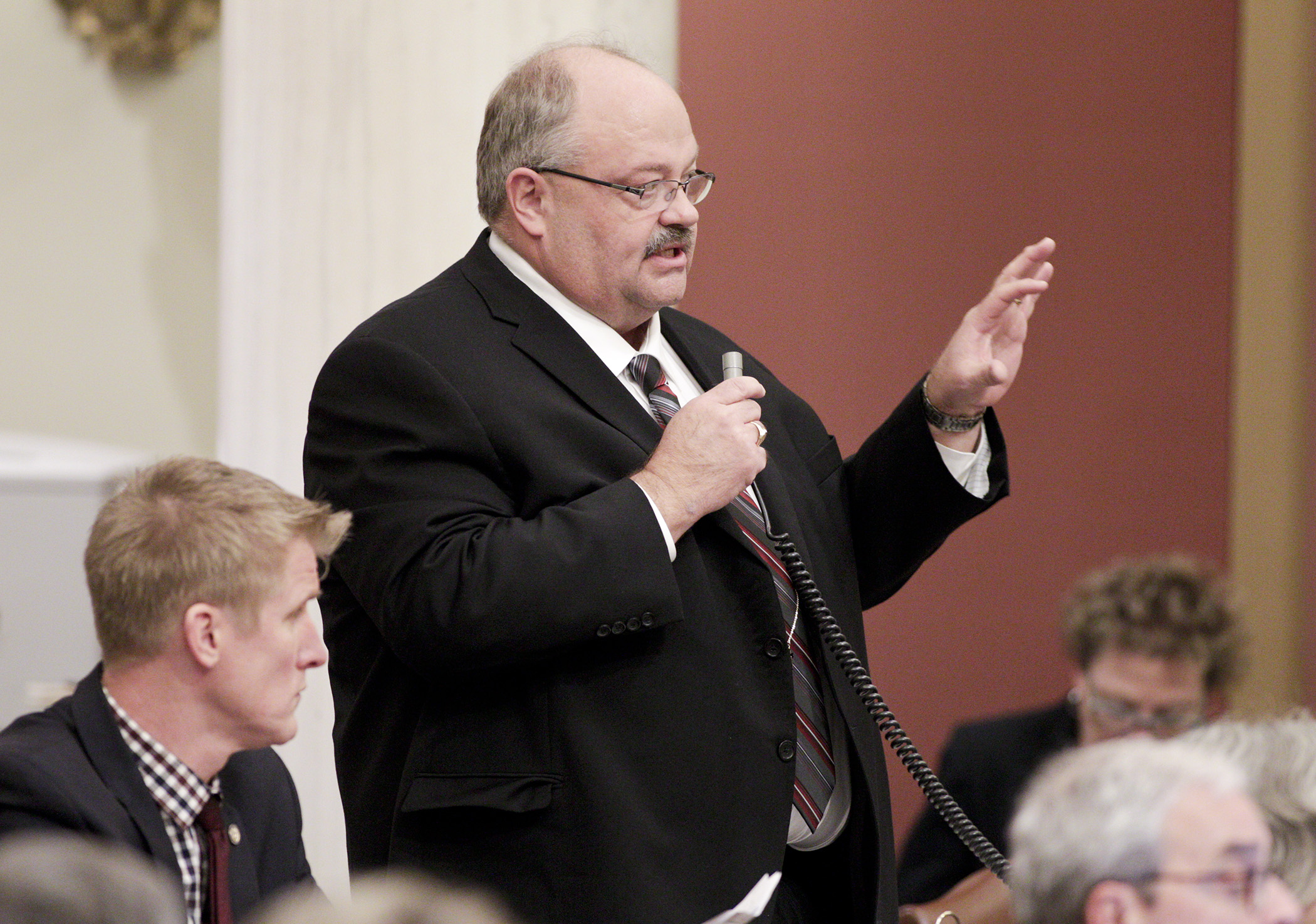Tax conformity is first bill passed off House Floor

The House wasted no time in passing a bill that would conform the state to some federal tax code changes made in 2015.
After an urgency was declared, HF2, as amended, was passed 130-0 Thursday during the second floor session of the year. Sponsored by Rep. Greg Davids (R-Preston), chair of the House Taxes Committee, the bill moves to the Senate where Sen. Roger Chamberlain (R-Lino Lakes) is the sponsor.
“There is a real time crunch here,” said Rep. Paul Marquart (DFL-Dilworth), DFL lead on the House Taxes Committee. He noted that filing of income taxes begins Jan. 23, and quick action will benefit taxpayers by better lining up state and federal deductions and credits.
He said the quickest a tax conformity bill has been passed in the past dozen years was Jan. 9. “If we can do this today we can be setting all sorts of good standards.”
Revenue Commissioner Cynthia Bauerly told the House Taxes Committee earlier in the day that quick action would better ensure quicker response to Minnesota taxpayers.
She said more than 178,000 Minnesota taxpayers could be affected by enacting the conformity measure, with an expectation of receiving a refund for the 2015 changes.
“The department has a plan to make it as easy as possible on taxpayers, so that we are doing most of the work for them,” she said.
WATCH House Taxes Committee reviews federal conformity
Most taxpayers would not have to file amended 2015 returns, she said. That convenience would come with a $1.6 million administrative cost, which could impact the state’s bottom line in Fiscal Year 2018. Additionally, paying for the tax deductions could mean a $21.7 million General Fund loss in the current year and $28.6 million in the 2017-18 biennium.
WATCH Full video of Thursday's House Taxes Committee meeting
This bill is similar to last year’s vetoed tax bill and its conformity.
Provisions addressed in the bill would include deductions for:
- education classroom expense up to $250;
- qualified higher education tuition and related expenses;
- mortgage insurance premiums;
- various charitable contributions, including tax-free IRA distribution up to $100,000 to certain public charities for those over age 70 ½; and
- discharges of indebtedness on principal residences.
The bill would also provide an increase in the working family credit; changes to the business equipment depreciation schedule; 100 percent exclusion of from the gain on sale of qualified small business stock held for more than five years; and more generous depreciation rules for leasehold and restaurant improvements.
In a morning media briefing announcing his tax proposals, Gov. Mark Dayton praised the House for moving the conformity issues forward so quickly.
“It will make a very big difference to many Minnesotans as they begin to file their federal and state income tax returns,” he said.
Related Articles
Search Session Daily
Advanced Search OptionsPriority Dailies
Ways and Means Committee OKs proposed $512 million supplemental budget on party-line vote
By Mike Cook Meeting more needs or fiscal irresponsibility is one way to sum up the differences among the two parties on a supplemental spending package a year after a $72 billion state budg...
Meeting more needs or fiscal irresponsibility is one way to sum up the differences among the two parties on a supplemental spending package a year after a $72 billion state budg...
Minnesota’s projected budget surplus balloons to $3.7 billion, but fiscal pressure still looms
By Rob Hubbard Just as Minnesota has experienced a warmer winter than usual, so has the state’s budget outlook warmed over the past few months.
On Thursday, Minnesota Management and Budget...
Just as Minnesota has experienced a warmer winter than usual, so has the state’s budget outlook warmed over the past few months.
On Thursday, Minnesota Management and Budget...